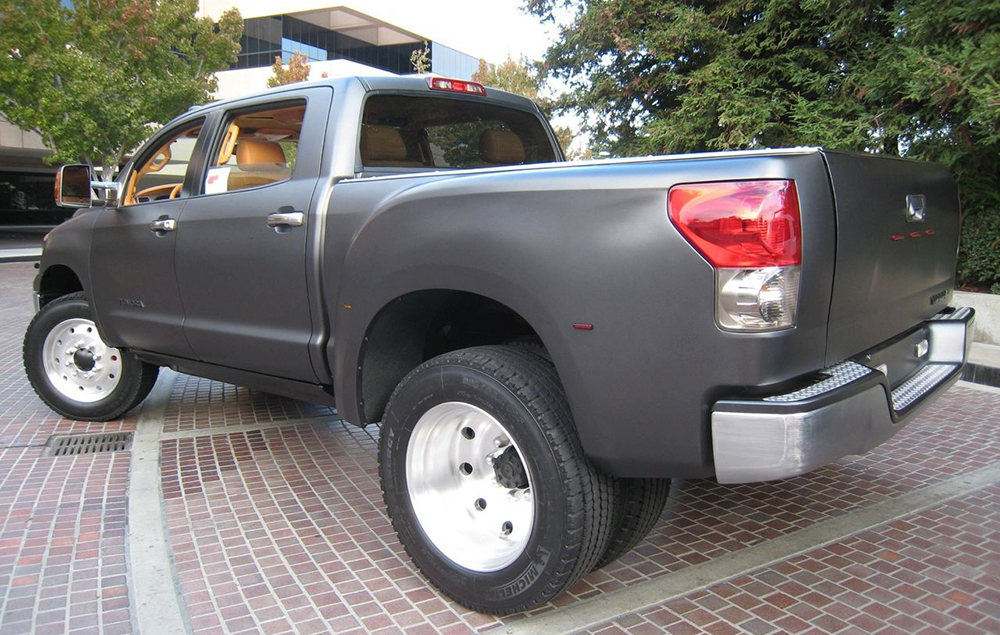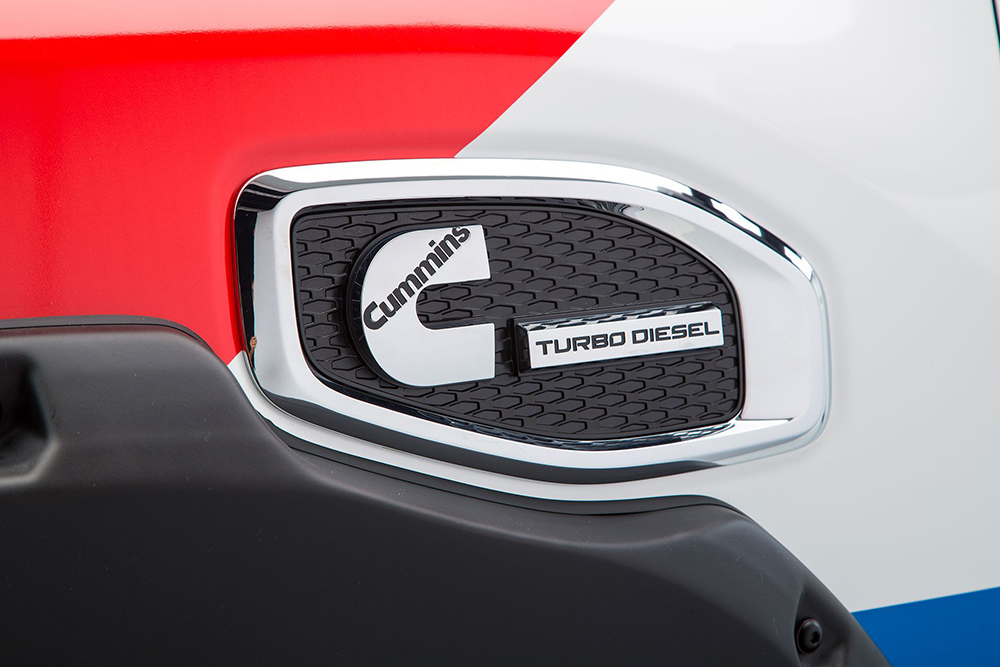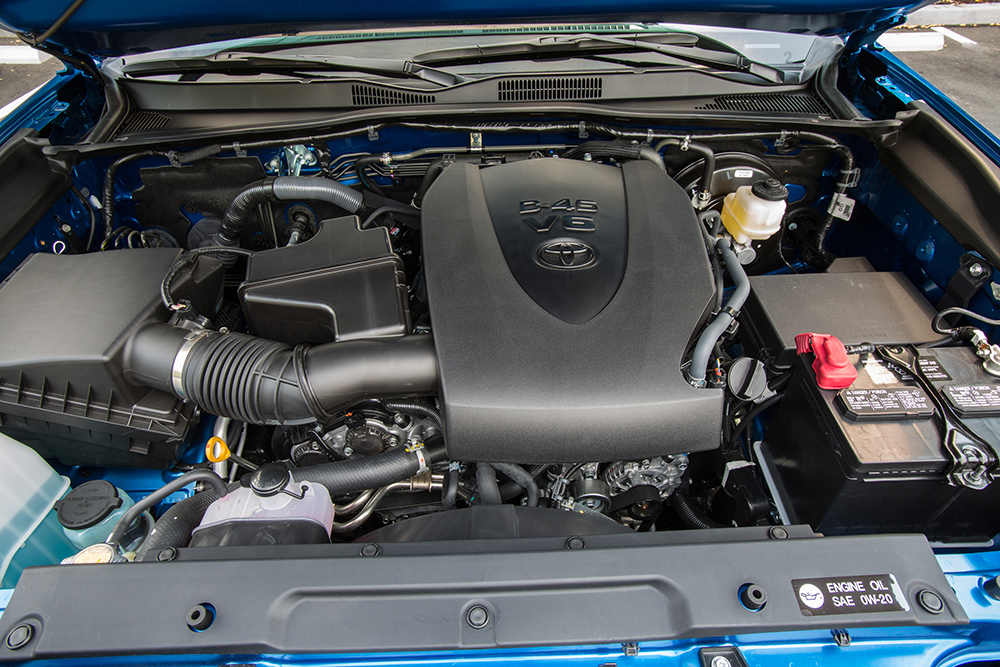5 Reasons Why We Believe the Toyota Tundra Diesel is Dead

Newsflash: This truck is not going to happen.
On any Toyota fan site, Facebook group or forum, the question about a diesel-powered Toyota Tundra will surely come up at least once a week if not once a day. Posters love to throw out all sorts of “insider knowledge” about its eminent launch. Sorry, diesel fans, a Toyota Tundra packing that engine is dead, dead, dead. Here are 5 reasons why.
- Toyota Executives Are Turning Against the Powertrain
One of most definitive reasons why a Toyota Tundra diesel will not happen is the changing attitudes of Toyota executives. They are continuing to turn away from the powertrain itself.
For example, Toyota’s Executive Vice President Didier Leroy told the UK website Autocar at the 2017 Tokyo Motor Show he doesn’t personally believe Toyota will build any new diesel engines.
“My personal opinion – and this is my personal opinion, not a company one – is no, we’ll not launch another diesel car,” Leroy told Autocar. Leroy is regarded as the second most powerful decision-maker at Toyota, behind CEO Akio Toyoda.
He made the statement right after Toyota pulled the plug on a diesel C-HR crossover in Europe. Leroy says the recent sales success of gasoline engines and hybrids is causing a weakening of consumer demand.
“We took the view, a long time ago, that we would not sell the C-HR [crossover] with a diesel engine,” said Leroy. “At the time, the distributors were against my decision. They said they needed diesel for the market. But we needed to follow the long-term trend of eco-vehicles.” Decision Against Diesel Development Occurred Years Ago
Decision Against Diesel Development Occurred Years Ago
At the same 2017 Tokyo Motor Show, Leroy made another interesting comment as reported by Autonews.com:
“At Toyota, we took some crucial decisions on diesels well ahead of the Volkswagen diesel scandal. We decided in 2014 not to offer a diesel on the CH-R (compact crossover). Here in Tokyo on December 1, 2011, I signed the contract to buy diesel engines from BMW for some of our European products because we had decided – almost six years ago – that investing in diesel engine development was no longer a priority at Toyota. By the way, at that time, 40 percent of our European sales were diesels, now they are 15 percent.”
What’s interesting about this announcement is that he says all the way back in 2011 Toyota had decided against future diesel engine development.
This directly flies in the face of 2014 rumors reported by many that Toyota was working on an in-house diesel and/or could use a Cummins diesel. The Cummins diesel had some merit, the Nissan Titan just launched with it, but the idea Toyota was developing its own doesn’t seem to add up.
-
 Nissan Titan XD Cummins Not Tearing Up the Marketplace
Nissan Titan XD Cummins Not Tearing Up the Marketplace
Whether fans like it or not, automakers like Toyota are in business to make a profit and not to satisfy its fans. Toyota, more so than other automakers, is very pragmatic in its approach and won’t invest in something without knowing it can turn a profit. In other words, Toyota is often consistently late to adapting new technology, however, when it does, it is spot on.
This hold true for new engines like the Cummins Toyota was rumored to be looking at in 2014 for its 2017 model. Imagine now if you are Toyota getting ready to make an announcement and you see Nissan introduce the Cummins powered Titan. Do you then make your own announcement? Nope. You wait.
Now a year and half since its release, it is clear Toyota made the right decision. The Nissan Titan XD Cummins has been a sales bust with the name Cummins not drawing in the customers Nissan thought it would.
With the lack of sales success, Toyota is now even less likely to offer that same engine in its truck.
- Diesel Starting to be Viewed Negatively Worldwide
In the past few years, the viewpoint on diesels has been rapidly changing. Not only are automakers like Volvo and Toyota announcing plans to stop building them, but countries are getting involved.
For example, both Britain and France have announced plans to ban the sales of diesel cars by 2040 (along with gas). China, the world’s largest automotive market, has also announced it is planning to ban the sale of diesel and petrol cars in the future.
Those countries are reportedly being joined by more as India and Norway have also announced similar plans. Germany is also looking more closely at doing the same. 5. Benefits Not As Great
5. Benefits Not As Great
One of the big reasons why consumers say they want a diesel is for fuel economy and pulling power. While diesel engines do produce more low-end torque for better pulling power and provide better fuel economy with a slow-burning fuel, these benefits are being diminished by new gasoline engine and transmission improvements.
Starting with better pulling power, new heavy-duty gasoline pickups are now competing better with the diesel thanks to more multi-speed transmissions. Many of these new trucks feature an eight-speed transmission which allows the engineers to change up the gearing ratio to return better off the line acceleration. Diesel engines still are often equipped with six-speed transmissions since there really isn’t much to be gained by more gears with that fuel.
Second fuel economy benefits are starting to be minimalized thanks to the improvements being gained through weight loss and gasoline engine improvements like Toyota’s use of both the Otto and Atkinson cycles in the new Tacoma. Add in the weight reduction with the aluminum engine and a new exhaust manifold integrated into the cylinder head and the future looks brighter for future gasoline engine improvements.
If Toyota can incorporate these improvements with a new eight-speed transmission and drop some weight due to new materials, then the next-gen Tundra should see a boost to fuel economy without going the diesel route.
In the end, a diesel engine does represent a 25 percent improvement in fuel economy, but it has a laundry list of issues preventing it from coming to the market. With the current atmosphere and lessening demand for diesels, it is simply not going to happen on the next-gen Tundra.
